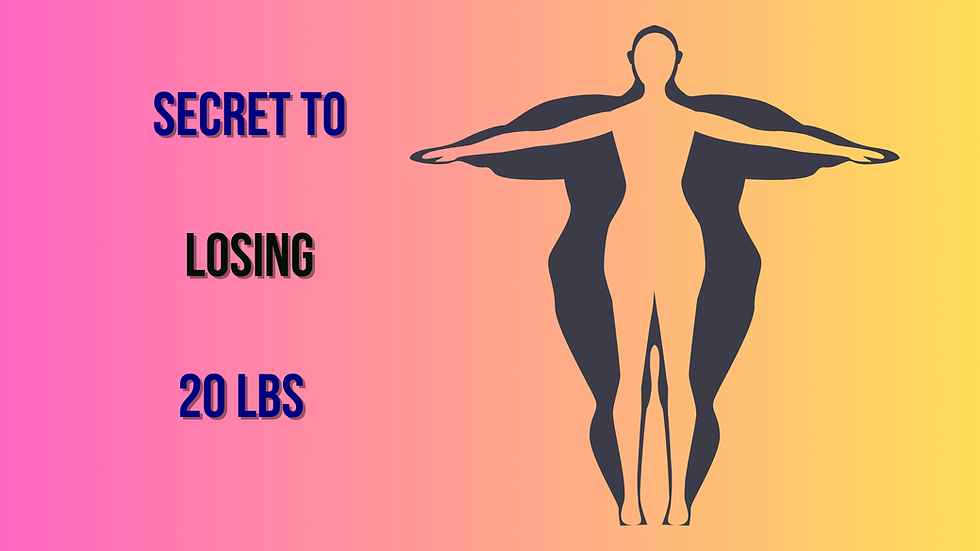How Long Does It Take To Lose 20 Pounds? Exploring Low-Carb Diets
- coreveinternationa

- Jan 20
- 3 min read

Welcome back to my series on "How Long Does It Take To Lose 20 Pounds?"! If you’ve been following along, you already know that weight loss is about finding the right strategies that work for you and your lifestyle. This time, we'll be discussing low-carb diets—a popular and effective approach to weight loss for many individuals.
What Are Low-Carb Diets?
Low-carb diets emphasize reducing your intake of carbohydrates, such as bread, pasta, rice, and sugary foods, while prioritizing proteins, fats, and non-starchy vegetables. The goal of this eating plan is to encourage your body to burn stored fat for energy instead of relying on quick-burning carbohydrates. Diets like keto, Atkins, and paleolithic diets are all variations of the low-carb approach.
Proven Strategies to Incorporate a Low-Carb Diet
Gradual Transition: If you've never tried a low-carb diet before, start by cutting out processed carbs and sugary snacks. Replace these with nutrient-dense options like lean proteins, healthy fats, and leafy green vegetables.
Meal Planning: Plan your meals and snacks ahead of time to ensure you're sticking to your new eating plan. Having healthy, low-carb options on hand can help avoid temptations.
Stay Hydrated: Drinking plenty of water supports digestion and helps reduce carb cravings, especially in the initial stages of switching to a low-carb lifestyle.
Monitor Your Progress: Track your food intake and how your body responds. Apps or journals can help you stay on track and adjust your diet as needed for optimal results.
Focus on Whole Foods: Minimize processed foods and opt for whole, nutrient-rich ingredients to keep your diet balanced and sustainable.
Benefits of a Low-Carb Diet
Adopting a low-carb diet can provide several benefits beyond weight loss. For many, this approach helps stabilize blood sugar levels, making it particularly beneficial for those with type 2 diabetes or insulin resistance. Additionally, low-carb diets are often linked to improved heart health, as they can lead to better cholesterol profiles and lower blood pressure. Following this dietary pattern may also reduce hunger by keeping you fuller for longer, thanks to high-protein and fat-based meals. Lastly, some people report experiencing increased mental clarity and sustained energy levels, as the body transitions to burning fat for fuel.
Potential Challenges and How to Overcome Them
While low-carb diets have numerous advantages, they can also come with challenges, particularly during the initial adjustment period. One common hurdle is the “keto flu,” a temporary state where individuals may feel fatigued, irritable, or have headaches as their body adapts to lower carb intake. To combat this, focus on staying hydrated and replenishing electrolytes with foods rich in potassium, magnesium, and sodium. Some may also find it hard to give up favorite carb-heavy foods, which is why finding creative low-carb alternatives, like cauliflower rice or zucchini noodles, can be helpful. Additionally, it’s important to ensure a balanced diet by including sufficient fiber from non-starchy vegetables to support digestion and overall health.
Read My Previous Blogs
If you're just starting out and looking for a solid foundation, be sure to check out my previous blogs where I cover essential topics like "How To Create A Calorie Deficit Diet," "The Role Of Nutrition In Weight Loss," and "Implementing Intermittent Fasting For Weight Loss." These concepts play a significant role in developing a healthy approach to shedding those extra pounds.
Stay tuned for more insights and strategies in this series, and remember—losing weight is a personal journey that takes time, patience, and consistency. Feel free to leave your thoughts or questions in the comments, and I’ll see you in the next post!
About the Author:
Steve, the CFO and online trainer at Coreve Health & Fitness Coaching, brings a wealth of experience and expertise to the table. With a background as a retired First Responder and Personal Trainer, Steve has a deep understanding of the importance of fitness and nutrition in achieving optimal health. In his previous role, he specialized in training police personnel, equipping them with the physical fitness required to compete for elite positions within the Department. Drawing from his extensive knowledge and passion for fitness, Steve now dedicates his time to providing online training and guidance, empowering individuals to reach their fitness goals and live a healthier lifestyle. With his unique background and commitment to helping others, Steve is a valuable asset to the Coreve Health & Fitness Coaching team.
For further information about health & fitness, contact us via our website for a free non-committal 30-minute consultation. Start your journey towards a healthier and fitter you today! https://www.corevefitness.ca/



コメント